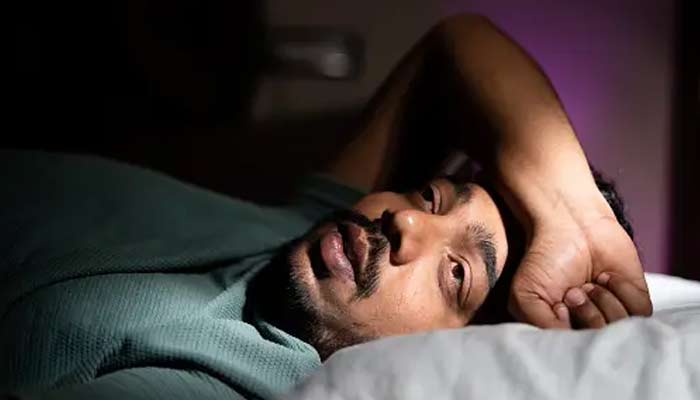Most Pakistanis with high blood pressure remain at risk despite treatment: experts
Despite being on prescribed medication, an alarming 89 per cent of Pakistan’s hypertension patients fail to control their blood pressure — a troubling figure that prompted serious concern among cardiologists and public health experts as they spoke on Friday on the eve of World Hypertension Day 2025.
At a press conference held at the Karachi Press Club, the experts warned that the country was facing a silent but deadly epidemic with millions unaware of their condition and most of those on treatment still not managing to bring their blood pressure under control.
Dr Javed Akbar Sial, executive director of the Sindh Institute of Cardiovascular Diseases (SICVD), said only 11 per cent of patients taking anti-hypertensive drugs were able to achieve controlled blood pressure levels. “Even in the United States, the control rate is around 14 per cent. But in Pakistan, this crisis is growing unchecked,” he said.
Dr Sial estimated that 40 to 50 percent of the adult population in Pakistan suffered from hypertension, which worsened with age and was a leading contributor to heart disease. “Most people don’t even realise they have hypertension until it leads to complications. In rural areas, half the population remains completely unaware of their condition,” he maintained.
The event was organised jointly by the SICVD, Alkhidmat Foundation Sindh, and Discovering Hypertension initiative, which aims at early detection of hypertension cases by creating awareness.
The three organisations also signed an agreement to launch screening programmes for hypertension and related illnesses in 30 districts across Sindh.
Dr Masood Javed, head of Discovering Hypertension, shared findings from a pilot study in seven areas, including Naushero Feroze, Kamber-Shahdadkot, Rato Dero, Dadu and Tharparkar.
“Out of over 5,000 people screened, half of the newly diagnosed patients had already abandoned treatment, believing they and effectively managing their condition, he added.
He attributed the widespread problem to poor lifestyle choices such as excessive intake of sugary drinks, fried foods and lack of exercise. “Even in villages, people are switching from jaggery to refined sugar and consuming more cold drinks, making the situation worse,” he noted.
Dr Tabassum Jafri, president of the Alkhidmat Foundation Sindh, called for integrating hypertension and diabetes care into community health programmes. “We’re screening people through our mobile health units in several districts, but awareness is the key. People need to understand the risks and prevention methods,” he said.
Mujtaba Alam, project director of Discovering Hypertension, said their focus was on identifying people who were unaware of their condition. “Last year alone, we found 10,000 people with undiagnosed hypertension,” he said.
Experts agreed that without a widespread national awareness drive focused on regular screenings, proper medication adherence and lifestyle changes, the country would continue to suffer increasing rates of preventable cardiovascular deaths due to undiagnosed and uncontrolled high blood pressure.
-
 Japan: PM Takaichi Flags China ‘Coercion,’ Pledges Defence Security Overhaul
Japan: PM Takaichi Flags China ‘Coercion,’ Pledges Defence Security Overhaul -
 Angorie Rice Spills The Beans On Major Details From Season 2 Of ' The Last Thing He Told Me'
Angorie Rice Spills The Beans On Major Details From Season 2 Of ' The Last Thing He Told Me' -
 Questions Raised Over Andrew Mountbatten-Windsor's Line Of Succession
Questions Raised Over Andrew Mountbatten-Windsor's Line Of Succession -
 'Shameless' Sarah Ferguson 'pressuring' Princess Eugenie, Beatrice For Major Reason
'Shameless' Sarah Ferguson 'pressuring' Princess Eugenie, Beatrice For Major Reason -
 Teacher Arrested After Confessing To Cocaine Use During Classes
Teacher Arrested After Confessing To Cocaine Use During Classes -
 Paul McCartney Talks 'very Emotional' Footage Of Late Wife Linda In New Doc
Paul McCartney Talks 'very Emotional' Footage Of Late Wife Linda In New Doc -
 Princess Beatrice, Princess Eugenie's Response To Andrew's Arrest Revealed
Princess Beatrice, Princess Eugenie's Response To Andrew's Arrest Revealed -
 King Charles And Princess Anne Bestow Honours At Windsor Castle
King Charles And Princess Anne Bestow Honours At Windsor Castle -
 King Charles 'worried' As Buckingham Palace, Royal Family Facing 'biggest Crisis'
King Charles 'worried' As Buckingham Palace, Royal Family Facing 'biggest Crisis' -
 Milo Ventimiglia Recalls First Meeting With Arielle Kebbel On The Sets Of 'Gilmore Girls' Amid New Project
Milo Ventimiglia Recalls First Meeting With Arielle Kebbel On The Sets Of 'Gilmore Girls' Amid New Project -
 Eric Dane Infuriated After ALS Diagnosis As He Feared The Disease Would Take Him Away From His Girls
Eric Dane Infuriated After ALS Diagnosis As He Feared The Disease Would Take Him Away From His Girls -
 It's A Boy! Luke Combs, Wife Nicole Welcome Third Child
It's A Boy! Luke Combs, Wife Nicole Welcome Third Child -
 Leading Astrophysicist Shot Dead At Southern California Home
Leading Astrophysicist Shot Dead At Southern California Home -
 Johnny Depp's Kind Gesture Towards Late 'Grey's Anatomy' Actor Eric Dane Before Death Laid Bare
Johnny Depp's Kind Gesture Towards Late 'Grey's Anatomy' Actor Eric Dane Before Death Laid Bare -
 How Princess Eugenie, Beatrice React To Andrew Arrest?
How Princess Eugenie, Beatrice React To Andrew Arrest? -
 Kylie Jenner 'convinced' Gwyneth Paltrow Is 'crushing' On Timothee Chalamet: 'It's Disrespectful'
Kylie Jenner 'convinced' Gwyneth Paltrow Is 'crushing' On Timothee Chalamet: 'It's Disrespectful'




